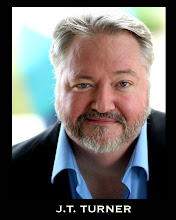 I am just starting up a new musical I am directing, Jason Robert Brown's "13". A great, fun musical all about the trials and tribulations of being 13.. We had a nice turnout for auditions, about 40 or so. But I have to say while some people did a great job, several people at auditions had a really odd habit.
I am just starting up a new musical I am directing, Jason Robert Brown's "13". A great, fun musical all about the trials and tribulations of being 13.. We had a nice turnout for auditions, about 40 or so. But I have to say while some people did a great job, several people at auditions had a really odd habit.They never looked at me while they auditioned.
Oh they may have glanced at me as they handed me their forms, but when they went to sing their audition song, many did not make eye contact. At all.
Here is the scene: a large church sanctuary, fits 300 people. My music director at a piano, the auditioner stands near the piano, and is told to sing to me. I sit in the pews with my choreographer, the only two people in a 300 seat place, and most of the singers never looked at me! In a few cases, they literally sang looking at empty seats to my left, right or in the empty balcony!
I get it, you are nervous or scared, but while not looking like Hugh Jackman I am not repellent to gaze upon. Not looking at me, looking elsewhere, makes me feel I don't matter. Is that the impression you should be going for?
So let us make a little time for me to discuss a favorite topic of mine, eye contact. Actor, singer, speaker, human being, this blog is for you, because eye contact is so important.
When you make good, solid eye contact, did you know a person likes you more? Yes, likes you more. So a key to getting people to like you, accept you, cast you, is to make good eye contact! It shows you are listening, respectful, and care. Not making eye contact gives the impression you are nervous, self centered, or rude. Think about it, when a person is avoiding looking at you, it sends off negative signals. When giving a speech, for example, making eye contact with the audience is critical. Just reading the speech, even a great speech, with no eye contact will leave a negative impact on your listeners. Adding eye contact makes them like you, and your speech, up to 90% more!
So if good eye contact gives a better impression, and I am casting people in a show, it makes sense to make good eye contact with me!
When I give a seminar in communication, I play many games. One particulalry fun one is that I pair people up. I have one person ask a simple question, like "Tell me about your life." That person then has to try to actively not listen to the answer! They doodle, look at papers, pretend to answer a phone, constantly interrupt the person answering. We have a lot of fun with the exercise, but it teaches an important lesson. When asked show they were not listening, the main thing they did was not to make eye contact!
OK, you may be the speaker, singer or auditioner, and you want ME to listen, not show YOU are listening. But the same principle applies. By making good eye contact, and showing me respect, I realize you are addressing me, and I want to listen to you more.
A few tips, yes number one is really weird, trust me on it:
1) Look in just one eye of your listener. A person cannot tell which eye you are looking into. Really, trust me. Trying to look in both eyes at once makes you look glazed or shifty. One eye. Try it, don't overdo it, just try it.
2) Occasionally switch which eye you are looking into. This keeps your eyes and focus fresh. Don't do it rapidly nor often or you look shifty. (Grandma was right, we hate shifty eyed people).Just the occasional change.
3) Do not look above a persons head, because they can tell you are looking over their head. Eye contact, not over your head contact!
4) If you are speaking to several people, or have several in an audition situation, make eye contact with them all. Do it casually, comfortably, use the one eye rule. Don't look panicky and shift from eye to eye, just sing or speak a line or two to each person.
5) Do not stare. There is a big difference between good eye contact and staring. You can feel it when you receive it, and when you do it, so don't!
All good tips, but what about when on stage or speaking to hundreds of people? Still make eye contact. I often make contact with just 3-4 people seated at various places around the room. Yet I have had dozens tell me they felt I was looking and speaking just to them!
JT- The Actors Sensei






I have always had issues with eye contact, and now, I can say you have given me great tips on how to overcome it. :)
ReplyDelete